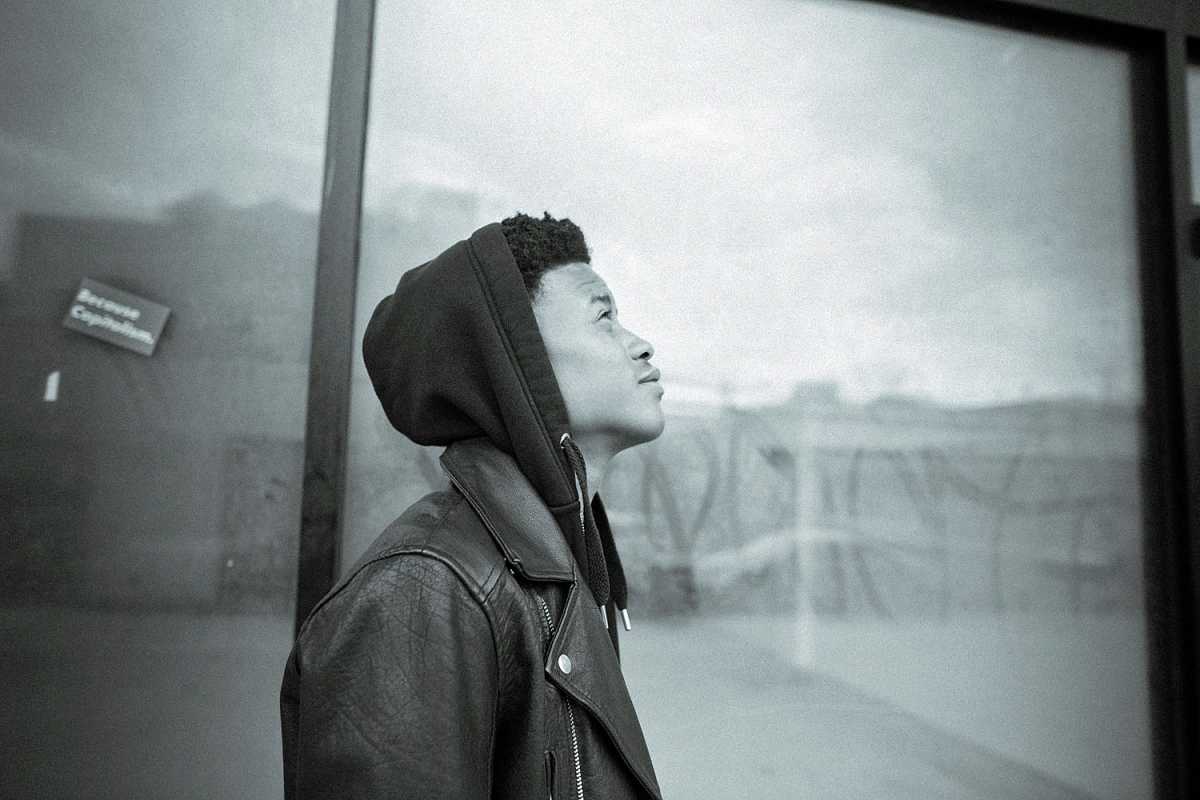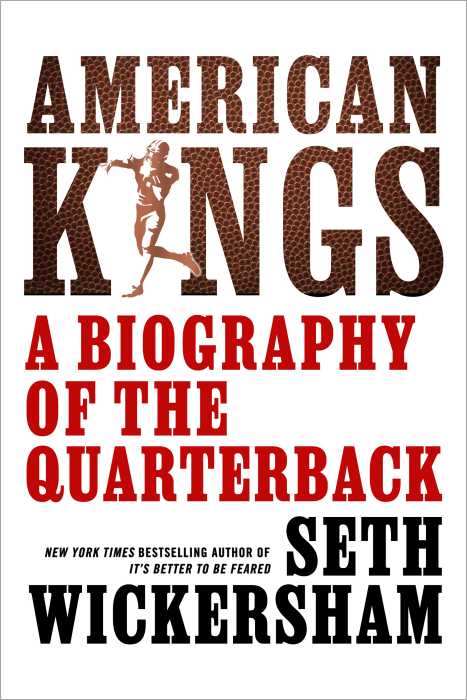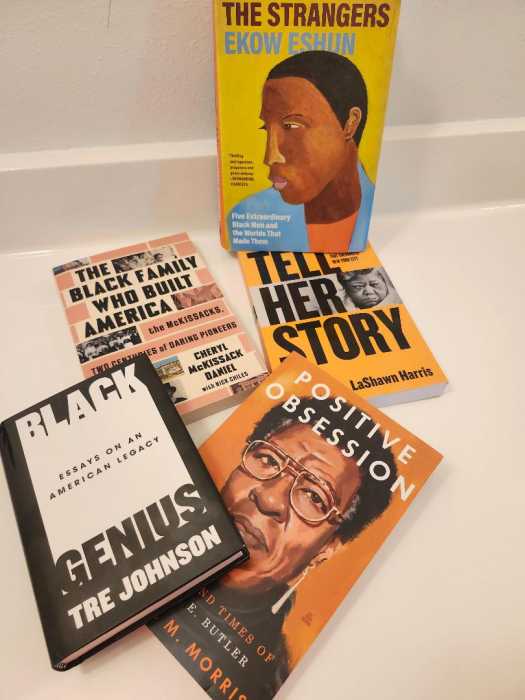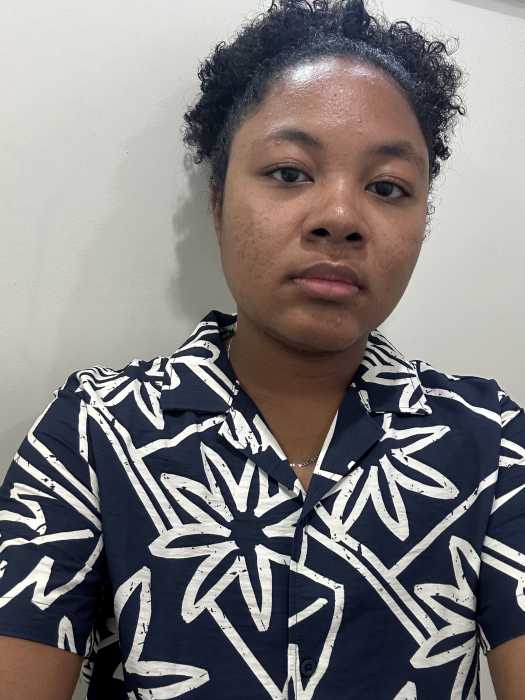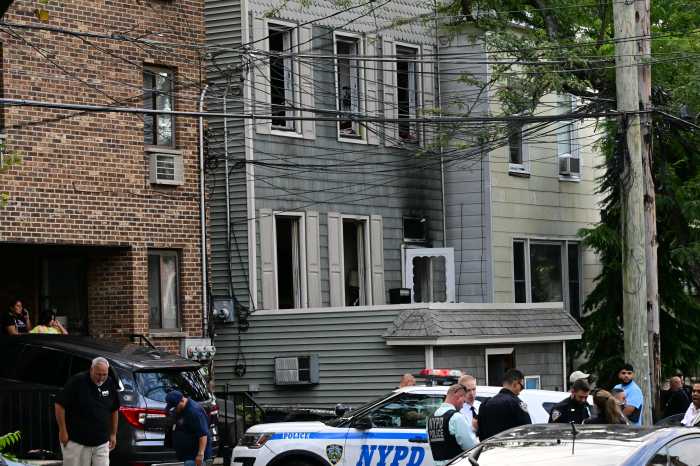On Jan. 16, Brooklyn native Tyriek White discussed his debut book, “We Are a Haunting” (Astra Publishing House, 2023), in a virtual conversation hosted by the Queens Public Library (QPL).
An excerpt of the book description on the Astra Publishing House website states: “In 1980’s Brooklyn, Key is enchanted with her world, glowing with her dreams. A charming and tender doula serving the Black women of her East New York neighborhood, she lives, like her mother, among the departed and learns to speak to and for them. Her untimely death leaves behind her mother, Audrey, who is on the verge of losing the public housing apartment they once shared.”
White grew up in East New York, Brooklyn, in a public housing project called Boulevard Houses, off the last stop on the No. 3 train, which felt like the edge of the world to him. Describing what life was like there as a child, White shared that he had neighbors who looked out for him, elders who adopted him into their families, and others around the area who showed love in their way.
“They gave me space to be who I was. I did not understand that we faced constant discrimination in housing, education, and employment or that the projects could feel like a police state with the constant presence of cops. Growing up there was special for me because it was home, the block parties were loud, and I could smell the ocean from our stoop on some mornings,” he said.
However, growing up there as a child was still challenging, considering the lack of resources available to poor and working people of color. “Private realty groups have bought up my old apartment complex, Boulevard, Linden Houses, and a few others,” he added.
When this happened, it had a significant impact on him as he was in the process of writing his book. It led him to ask and explore answers to the following question: “Just like the privatization of prisons, of education, of youth centers, and many other public institutions meant to “serve” citizens, what happens when affordable housing to our most vulnerable becomes for-profit entities?”
The greatest influence on White’s career path was when he finally left New York for college and lived in California. He stated that while there, he realized how other people lived and how free people were yet sheltered.
“It broadened my worldview. I began to see what the outside world thought of people who come from neighborhoods like mine. I’ve seen family, people I care about, get locked away. I’ve seen lives upended by the state. Suddenly, wanting to tell my story was even more important because it wasn’t only my story,” he explained.
When he realized he wanted to become an author, White said, “I don’t know if I pursued it, perhaps the reverse.” His mother was a heavy reader, so he was always around books as a child. “I loved disappearing into other worlds since the world outside my window was hard at times,” he added.
He always knew he liked telling stories since he was a kid, which manifested into different things.
“I’d write raps and make beats with my friends to tell a story in a different way, which I realized was poetry, which made me explore other poetic forms. Going to Urban Word NYC, watching my friends at open mics at the Bowery, reading Invisible Man by Ralph Ellison the summer before college. All of it made me want to become an author,” he continued.
He has been working as the media director of Lampblack Literary Foundation (LLF) for five years now. Joining the Foundation during the pandemic, he was interested in the mission to provide mutual aid for Black writers, while also striving to support the voices of emerging and established writers.
Sharing what the experience has been like, White said, “This work led to understanding community and solidarity is a defense against systemic oppression, folk defending and protecting each other. I learned how we constantly practice mutual aid among each other in many ways in our homes, our churches, at work, and other places. Forming a money pool with folk was a susu (which is a Ghanaian term), though I learned it had many names across the diaspora — was a sol in Haiti, or called a box hand in Guyana.”
He has seen the book have an uplifting impact both people in his community and writers that LLF has supported. He stated, “When folk in my community, or neighborhoods like it, approach me about the book, it is always with familiarity. People recognize a place or identify with an experience. We’ve been given books and media that stereotype us, flatten who we are, or ignore us completely. To me, creating literature that celebrates the seemingly insignificant moments that create our lives is truly powerful.”
White says he would love it if his book helps to add nuance to discussions of race, class, and what community can look like, and he hopes that writing the lives of the disenfranchised with care and devotion will allow people to feel empathy towards each other.
“I hope to situate the experience of working-class Black people in this country within a historical and literary framework that honors the ancestors. I won’t feel bad about writing about the legacy of slavery in a country which seeks to ban the teaching of it in classrooms, which outlaws books that interrogate its reverberations,” he continued.
The Foundation is currently holding monthly readings at the Museum of Contemporary African Diasporan Arts (MoCADA), which is celebrating its fifth anniversary this year.
White says the Foundation plans to celebrate the community they’ve built as a team and continue offering ways for Black writers to be supported through its magazine, reading series, interviews, direct aid, and more.
Find all information on where to purchase We Are a Haunting here: https://astrapublishinghouse.com/product/we-are-a-haunting-9781662601712/.
To stay updated on White and his work, those interested can follow him on his social media platforms, which can be found on his website: https://tyriekwhite.com/.
To stay updated on future events hosted by QPL, interested people can sign up for their newsletter on the library website: https://www.queenslibrary.org/.


